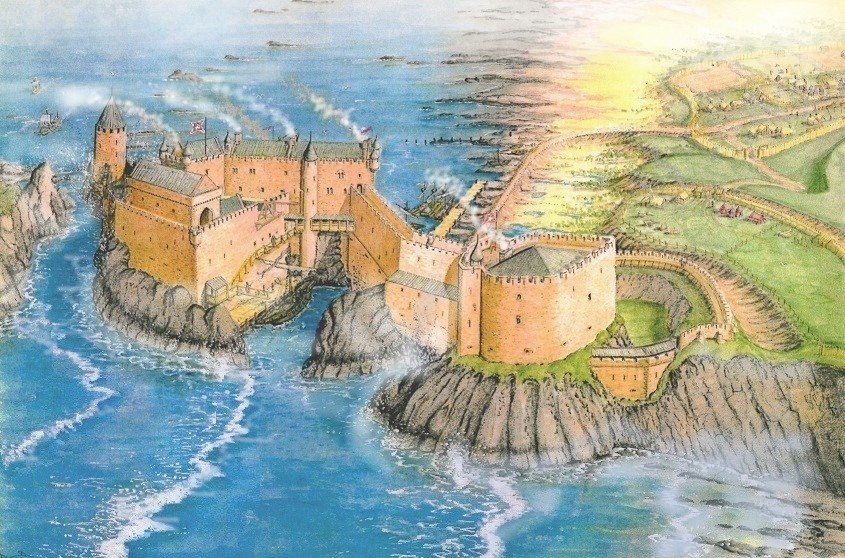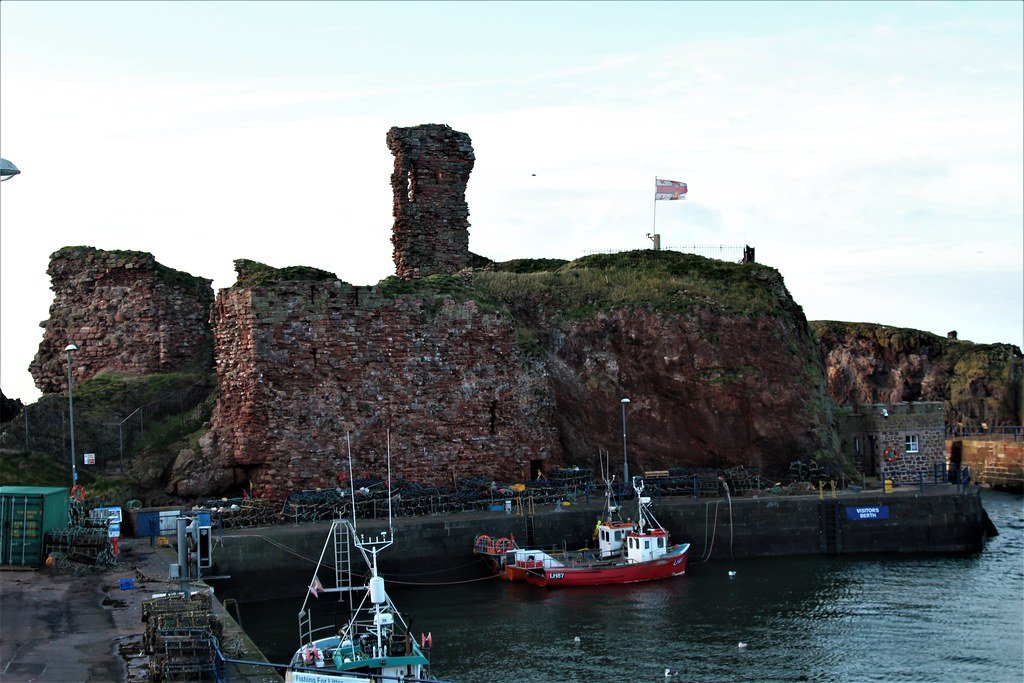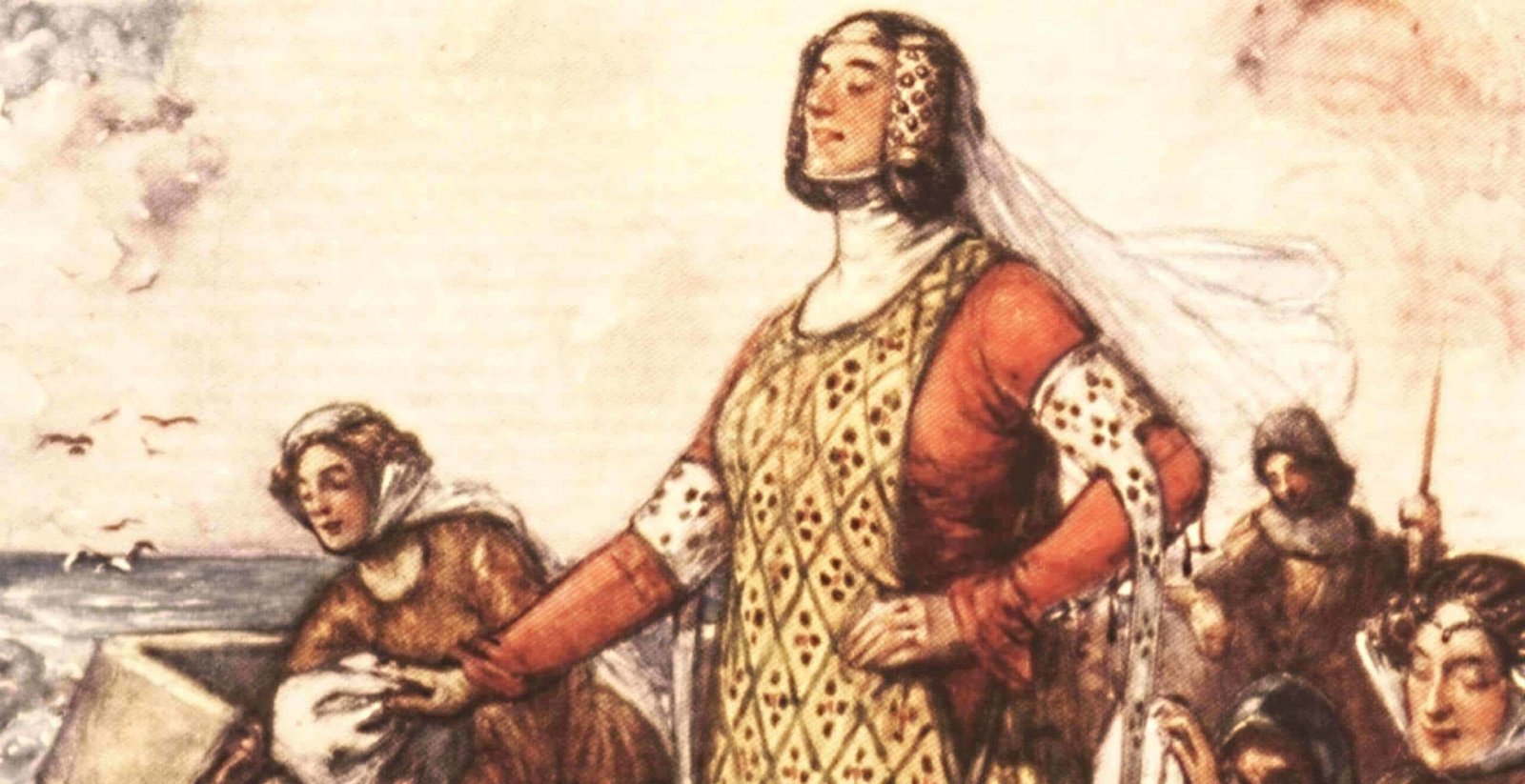The Lady of Dunbar
How Black Agnes Defied an Empire
Dunbar Castle is a vital stronghold near today’s picturesque fishing village of Dunbar, about 50 km east of Edinburgh. This rugged coastal fortress stood tall on the cliffs, its thick walls battered by waves ~ and soon by war. That’s where our story takes place.
After the death of Robert the Bruce in 1329, Scotland’s hard-won independence was under threat once again. Nearly a decade later, in 1338, the English King Edward III, smelling weakness after the death of the Scottish king, launched an assault along the eastern coast. His goal: seize Dunbar Castle. William Montagu, the Earl of Salisbury, led the English army. But he hadn’t counted on one formidable obstacle: Black Agnes. Agnes got her nickname “black” because of her black hair and unusually dark complexion.
Agnes was the daughter of Thomas Randolph, a close ally of Robert the Bruce, and the wife of Patrick, Earl of Dunbar and March. When Patrick was away fighting, Agnes was left in charge of the castle with fewer than 100 men. The Earl of Salisbury arrived with 4,000 troops and siege weapons, expecting an easy victory due to the castle’s seemingly vulnerable position. But instead, he met his match in the countess.
When asked to surrender, Agnes famously replied in Scots verse:
Of Scotland’s King I haud my house,
He pays me meat and fee,
And I will keep my gude auld house,
While my house will keep me.
In other words: “This castle belongs to my king, and I’ll hold it until it falls around me.”
The English began their siege, hurling boulders at the castle walls. But after each barrage, Agnes sent her maidservants in fine dresses to dust the battlements with handkerchiefs ~ as if cleaning up after a minor inconvenience. It was a mockery, and it infuriated the Earl of Salisbury.
The English then tried to use a siege engine known as a “sow” ~ a covered battering ram designed to break down the gates. But Agnes ordered heavy stones to be dropped on it, smashing it and killing the soldiers inside. She taunted Earl of Salisbury with a now-famous shout: “Beware, Montagu, your sow is about to farrow!”


When brute force failed, Montagu thought a bribery attempt might work. Thus, he tried to bribe a guard who was loyal to Agnes and revealed the plot to her. Playing along, she ordered the gate opened ~ then slammed it shut at the last moment, nearly capturing Montagu himself. “Farewell, Montagu,” she mocked, “I had hoped you’d join us for supper!” That night, the English crept in ~ only to be ambushed and nearly trapped inside. Earl of Salisbury escaped, but his pride didn’t.
Desperate, Earl of Salisbury brought Agnes’s brother, John Randolph, the captured Earl of Moray, to the walls and threatened to execute him if she didn’t surrender. Agnes coolly replied that if he died, she would inherit his title ~ so the English might as well go ahead. Once again, her resolve couldn’t be shaken, her brother was not executed.
After five months of siege, food supplies inside the castle were running low. But help came from the sea. Sir Alexander Ramsay sailed in under the cover of night and smuggled in fresh provisions. The next morning, Agnes fired a fresh loaf of bread into the English camp using a catapult ~ just to rub it in.
Realizing he was beaten, Earl of Salisbury called off the siege and retreated in shame. In the end, he had wasted months and thousands of pounds. To save face, King Edward III used the Hundred Years’ War as a pretext to withdraw his army, all thanks to one indomitable woman. The Scots immortalized her in a ballad:
She made a stir in tower and trench,
That brawling, boisterous Scottish wench ~
Cam I early, cam I late,
I found Agnes at the gate.
Black Agnes remains a legend, not for brute strength, but for her intelligence, bravery, and unshakable loyalty to Scotland. In an age when women were often expected to stay silent, she shouted defiance from the battlements—and Scotland has never forgotten her.
Postscript:
Black Agnes inherited significant lands, including the Isle of Man, after the death of her brother John Randolph in 1346. She died in 1369 and is buried in Mordington.
William Montagu, Earl of Salisbury, was captured in 1340 during the Hundred Years’ War near Lille but was released in 1342 on condition that he never fight against France again. He died in 1344 in Windsor from injuries sustained in a tournament.
By AnniM
Sources:
- “Black Agnes Randolph.” Historic UK, https://www.historic-uk.com/HistoryUK/HistoryofScotland/Black-Agnes/
- “Agnes Randolph and the Siege of Dunbar Castle.” Hidden Scotland, https://hiddenscotland.co/agnes-randolph-and-the-siege-of-dunbar-castle/
- “Agnes Randolph, Countess of Dunbar.” Wikipedia, Wikimedia Foundation, https://en.wikipedia.org/wiki/Agnes_Randolph,_Countess_of_Dunbar
- „William Montagu, 1st Earl of Salisbury.” Wikipedia, Wikimedia Foundation,
https://en.wikipedia.org/wiki/William_Montagu,_1st_Earl_of_Salisbury

A fascinating and uplifting story, very well told. I have to admit to not having heard of Agnes Randolph before. Thank you for sharing this.